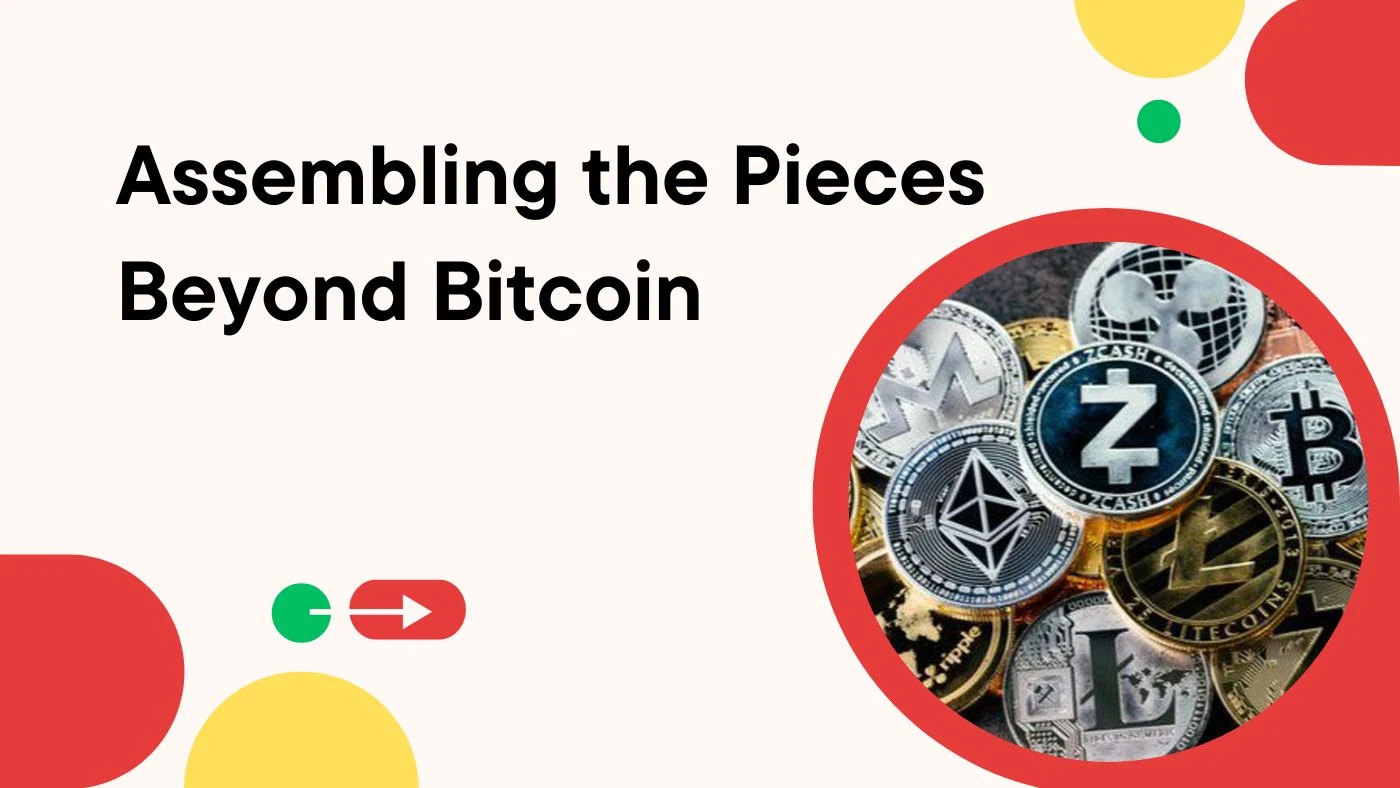Assembling the Pieces Beyond Bitcoin: The Altcoin Puzzle
Altcoins offer a wide range of features and use cases, expanding the possibilities of blockchain technology beyond Bitcoin.- Article authored by Kunal Chowdhury on .
Altcoins offer a wide range of features and use cases, expanding the possibilities of blockchain technology beyond Bitcoin.- Article authored by Kunal Chowdhury on .
The world of cryptocurrencies has evolved significantly since the emergence of Bitcoin in 2009. While Bitcoin remains the most well-known and widely adopted cryptocurrency, it's just the tip of the iceberg in the cryptocurrency universe. Altcoins, or alternative cryptocurrencies, have gained prominence in recent years, offering a diverse range of features and use cases.
In this article, we will delve deep into the world of altcoins, exploring their definition, history, and the unique role they play in the cryptocurrency ecosystem. Bitcoin and Altcoins are great assets to invest in but you need to sharpen your investing skills to make the most out of it. The robbo-ai.org can help you to get started on the roads of investment education.

Altcoins are cryptocurrencies other than Bitcoin. They are designed to address specific challenges or offer unique features that differentiate them from Bitcoin. These digital assets are built on various blockchain technologies, each with its own set of rules and functionalities. Altcoins come in various forms, including tokens, forks, and initial coin offerings (ICOs). They represent a vibrant and innovative space within the broader cryptocurrency market.
While Bitcoin paved the way for cryptocurrencies, altcoins have carved their niche by introducing innovations and catering to different user needs. Key differences between altcoins and Bitcoin include transaction speed, consensus mechanisms, and the ability to execute smart contracts. Bitcoin primarily serves as a digital store of value, while altcoins expand the cryptocurrency landscape by offering various use cases and functionalities.
The cryptocurrency market has witnessed an explosion of altcoins in recent years, with thousands of projects vying for attention. These altcoins can be categorized into tokens built on existing blockchains, forks of existing cryptocurrencies, and those launched through ICOs. The factors driving the creation of altcoins range from solving specific problems to capitalizing on market trends.
Several altcoins have made a significant impact in the cryptocurrency space. Ethereum, for instance, introduced smart contract capabilities, enabling decentralized applications (DApps) to run on its blockchain. Ripple's XRP token aims to revolutionize cross-border payments, and Litecoin offers faster transaction confirmation times compared to Bitcoin. These examples illustrate the diverse range of solutions and innovations that altcoins bring to the table.
Many investors are drawn to altcoins due to their potential for high returns. The volatility in the altcoin market can lead to substantial gains, but it also presents significant risks. Investors need to conduct thorough research and understand the unique attributes of each altcoin before investing.
Trading altcoins requires access to cryptocurrency exchanges, where these digital assets are bought and sold. Popular altcoin exchanges include Binance, Coinbase Pro, and Kraken. Traders employ various strategies, such as day trading and swing trading, to capitalize on price fluctuations. It's crucial to stay updated on market trends and employ risk management techniques to mitigate losses.
Altcoins have introduced several technological innovations to the blockchain space. These include diverse consensus mechanisms beyond Bitcoin's proof-of-work, such as proof-of-stake and delegated proof-of-stake. Some altcoins offer enhanced privacy features, catering to users seeking increased anonymity in their transactions.
Altcoins have contributed to the development of the broader blockchain technology ecosystem. They have explored scalability solutions and experimented with different governance models. Their innovations have prompted ongoing discussions within the cryptocurrency community about the best approaches to address the challenges facing blockchain technology.
The regulatory landscape for cryptocurrencies is continually evolving. Governments and regulatory bodies worldwide are working to establish clear guidelines for the use and trading of altcoins. Compliance with these regulations is essential for altcoin projects to operate legally and gain the trust of users and investors.
The altcoin space has not been immune to security breaches and vulnerabilities. Hacks and scams have occurred, resulting in the loss of funds for users and investors. Protecting your altcoin investments requires a comprehensive understanding of security best practices, including secure wallet management and cautious participation in ICOs and token sales.
The future of altcoins is shaped by emerging trends and predictions. Altcoins play a significant role in the decentralized finance (DeFi) ecosystem, offering innovative solutions for lending, borrowing, and trading. Non-fungible tokens (NFTs) have also gained popularity, with altcoins supporting NFT marketplaces and applications. Additionally, altcoins may see increased integration with traditional finance systems as cryptocurrencies become more mainstream.
While altcoins offer numerous opportunities, they also face challenges. Environmental concerns surrounding energy-intensive proof-of-work consensus mechanisms raise questions about the sustainability of some altcoins. Additionally, the balance between decentralization and centralization remains a contentious issue, with different altcoins taking varying approaches.
In this article, we've explored the diverse world of altcoins, from their definition and historical context to their impact on the cryptocurrency landscape. Altcoins offer a wide range of features and use cases, expanding the possibilities of blockchain technology beyond Bitcoin. However, investors and users must navigate the evolving regulatory landscape and remain vigilant about security risks. The future of altcoins holds promise and potential, but it also presents challenges that the cryptocurrency community must address as this exciting journey continues to unfold.
Thank you for visiting our website!
We value your engagement and would love to hear your thoughts. Don't forget to leave a comment below to share your feedback, opinions, or questions.
We believe in fostering an interactive and inclusive community, and your comments play a crucial role in creating that environment.